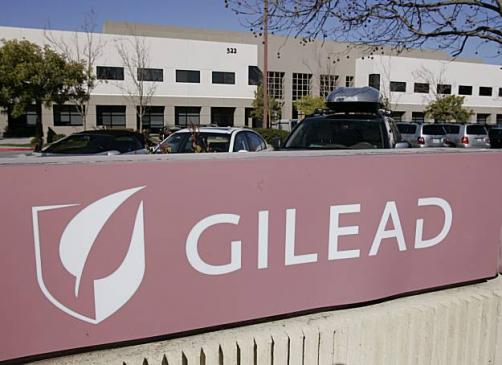Gilead announces SVR12 rates from Phase 3 study evaluating Harvoni® for the treatment of chronic hepatitis C in patients co-infected with HIV
Posted: 27 February 2015 |
96 percent SVR12 rate for hepatitis C genotypes 1 and 4 among HIV-infected patients on antiretroviral therapy…


Gilead Sciences, Inc. (NASDAQ:GILD) today announced results from a Phase 3 study, ION-4, evaluating the once-daily single tablet regimen Harvoni® (ledipasvir 90 mg/sofosbuvir 400 mg) for the treatment of genotypes 1 or 4 chronic hepatitis C virus (HCV) infection among patients co-infected with HIV. In the trial, 96 percent (n=321/335) of HCV patients achieved a sustained virologic response 12 weeks after completing therapy (SVR12). Patients who achieve SVR12 are considered cured of HCV infection. These data were presented in a late-breaker oral session (Session 152LB) at the 22nd Conference on Retroviruses and Opportunistic Infections (CROI) in Seattle.
“This trial provides strong evidence that people who are co-infected with HIV can achieve very high rates of hepatitis C cure with a combination direct-acting antiviral regimen,” said Susanna Naggie, MD, MHS, Director of Infectious Diseases Research at Duke Clinical Research Institute and Principal Investigator for the ION-4 study. “These high cure rates were observed in most of the historically difficult-to-treat sub-populations, including those who failed previous treatment and those with cirrhosis. We are greatly encouraged by these findings.”
ION-4 is a Phase 3, multicenter, open-label study investigating the efficacy, safety and tolerability of Harvoni treatment for 12 weeks in 335 patients with HCV genotype 1a (75 percent), 1b (23 percent) or 4 (2 percent) and HIV-1 co-infection. The study included HCV treatment-naïve (45 percent) and treatment-experienced (55 percent) patients, including patients with compensated cirrhosis (20 percent), whose HIV was suppressed using one of three HIV antiretroviral (ARV) regimens: tenofovir and emtricitabine with efavirenz (Atripla®), raltegravir or rilpivirine (Complera®).
SVR12 rates did not differ significantly by prior HCV treatment status, presence or absence of cirrhosis, or ARV regimen. No patients discontinued Harvoni due to an adverse event (AE). Of the 14 patients that did not achieve SVR12, two patients experienced virologic failure during treatment (likely due to non-compliance per physician reporting), 10 experienced virologic relapse post-treatment, one was lost to follow up and one died due to causes unrelated to study drug. The most common AEs reported were headache (25 percent), fatigue (21 percent) and diarrhea (11 percent).
Harvoni received regulatory approval for the treatment of chronic HCV genotype 1 infection in adults in the United States in October 2014. Based on the ION-4 trial results, Gilead plans to file a supplemental New Drug Application with the U.S. Food and Drug Administration for Harvoni to include the results from this study in the U.S. label. Harvoni received marketing authorization in Europe in November 2014, where data from a small study in HIV-HCV co-infected patients (ERADICATE) are included in the prescribing information.
Important Safety Information for Harvoni
Warnings and Precautions
- Risk of Reduced Therapeutic Effect of Harvoni Due to P-gp Inducers: Rifampin and St. John’s wort are not recommended for use with HARVONI as they may significantly decrease ledipasvir and sofosbuvir plasma concentrations.
- Related Products Not Recommended: Harvoni is not recommended for use with other products containing sofosbuvir (Sovaldi®).
Adverse Reactions
Most common (≥10%, all grades) adverse reactions were fatigue and headache.
Drug Interactions
- In addition to rifampin and St. John’s wort, coadministration of Harvoni is also not recommended with carbamazepine, oxcarbazepine, phenobarbital, phenytoin, rifabutin, rifapentine, and tipranavir/ritonavir. Such coadministration is expected to decrease the concentration of ledipasvir and sofosbuvir, reducing the therapeutic effect of Harvoni.
- Coadministration of Harvoni is not recommended with simeprevir due to increased concentrations of ledipasvir and simeprevir. Coadministration is also not recommended with rosuvastatin or co-formulated elvitegravir/cobicistat/emtricitabine/tenofovir disoproxil fumarate due to increased concentrations of rosuvastatin and tenofovir, respectively.
Additionally, patients taking Harvoni concomitantly with the combination of efavirenz, emtricitabine and tenofovir disoproxil fumarate should be monitored for tenofovir-associated adverse events.
Consult the full Prescribing Information for Harvoni for more information on potentially significant drug interactions, including clinical comments.




